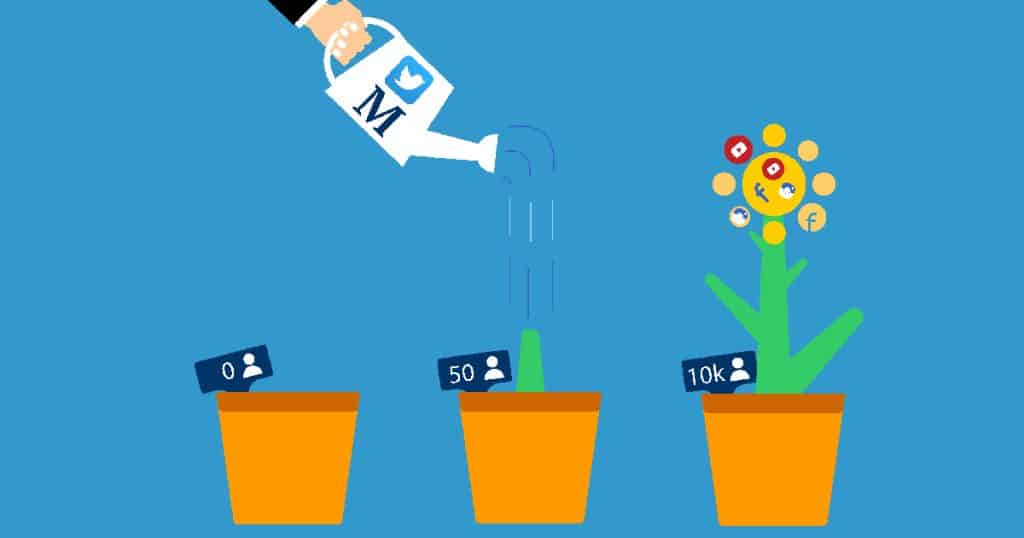First, let’s take a look at the definition of paid social media:
Paid social media is a form of online advertising that uses platforms like Facebook, LinkedIn, and Twitter to deliver paid advertising messages to users.
Organic social media, on the other hand, is unpaid:
Organic social media is the unpaid promotion of your brand or product on social media platforms like Facebook, LinkedIn, and Twitter.
Types of campaigns that you can run:

1. Banner Ads: Banner ads are graphical advertisements that are typically placed at the top or bottom of a web page. Banner ads can be used to promote a product or service or to generate leads.
2. Sponsored Posts: Sponsored posts are posts that are published on a social media platform and are paid for by a brand or company. Sponsored posts are a great way to reach a specific target audience and increase brand awareness.
3. Social Media Ads: Social media ads are ads that are placed on social media platforms, such as Facebook and Twitter. Social media ads are a great way to reach a large audience and to promote a product or service.
4. Retargeting: Retargeting is a type of advertising that targets people who have visited your website. Retargeting is a great way to reach people who are interested in your product or service and to increase brand awareness.
If you’re thinking about running a paid social media advertising campaign, here are a few things to keep in mind:
1. Choose the right social media platform: Different social media platforms cater to different audiences. Choose the social media platform that is most relevant to your target audience.
2. Know your target audience: It’s important to know who your target audience is and what their interests are. This will help you to target your advertising campaign more effectively.
3. Create a compelling ad: Your ad should be catchy and interesting so that it will catch your audience’s attention.
4. Test your ad: It’s important to test your ad before you launch it. This will help you to determine whether or not your ad is effective.
5. Track your results: It’s important to track the results of your advertising campaign so that you can determine its effectiveness.
Tips on how to best utilize organic social media for your business:

1. Establishing a strong social media presence. This means having a consistent presence on your main social media channels, using high-quality visuals, and sharing valuable content that your target audience will find interesting and useful.
2. Use social media to build relationships with customers and followers. Show that you’re listening to what they have to say, and be responsive to comments and questions.
3. Use social media to drive traffic to your website. Make sure your website is optimized for SEO and that your social media links lead to your website.
4. Use social media to create brand awareness. Share your company’s story, mission, and values, and make sure your branding is consistent across all your social media channels.
5. Use social media to generate leads and sales. Promote your products and services, and create social media ads that target your target audience.
Organic social media can be a powerful tool for businesses of all sizes, and using it effectively can help you reach new customers, build relationships, and drive traffic and sales.
Ultimately, the best way to use paid and organic social media for your business will depend on your specific needs and goals. However, by using both paid and organic social media, you can reach a large number of people and build relationships with potential customers.
Related articles
Related services:
 Anas is our go-to copywriter with a knack for crafting persuasive and high-converting eCommerce landing pages. His passion for words and understanding of consumer psychology helps turn visitors into loyal customers. When he's not refining his copy, Anas enjoys exploring the latest digital marketing trends and experimenting with new writing techniques. His blend of creativity and strategic thinking makes him an indispensable part of our energetic team.
Anas is our go-to copywriter with a knack for crafting persuasive and high-converting eCommerce landing pages. His passion for words and understanding of consumer psychology helps turn visitors into loyal customers. When he's not refining his copy, Anas enjoys exploring the latest digital marketing trends and experimenting with new writing techniques. His blend of creativity and strategic thinking makes him an indispensable part of our energetic team.












